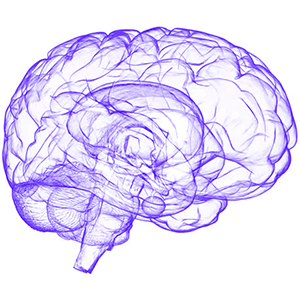 If you have experienced two or more unprovoked seizures or your EEG (electroencephalogram) shows an increased risk for seizures, then you may be started on antiseizure medications. There are many different types of antiseizure medicines. These medicines are usually taken every day to twice a day. Below are some examples of different antiseizure medications, the type of epilepsy they treat, and their side effects.
If you have experienced two or more unprovoked seizures or your EEG (electroencephalogram) shows an increased risk for seizures, then you may be started on antiseizure medications. There are many different types of antiseizure medicines. These medicines are usually taken every day to twice a day. Below are some examples of different antiseizure medications, the type of epilepsy they treat, and their side effects.
| Medication (Brand Name) | Focal or Generalized Seizure? | Common Side Effects | Rare Adverse Effects |
| Levetiracetam (Keppra) | Focal or generalized seizures | Fatigue, headache, dizziness, irritability or mood changes | |
| Lamotrigine (Lamictal)
|
Focal or generalized seizures | nausea or rash, insomnia | Increased risk of abnormal heart rhythms (arrhythmia)
Can rarely lead to a full body rash and potentially shock (Steven’s Johnson Syndrome) |
| Valproic Acid
(Sodium Valproate, Depakote) |
Focal or generalized seizures | nausea and vomiting, fatigue | low platelets, sleepiness, liver dysfunction, pancreatitis
Use in caution in an individual who can be or is planning to be pregnant, due to the risk of birth defects
|
| Oxcarbazepine (Trileptal) | Focal seizures | headache, dizziness, fatigue and sleepiness, double vision, difficulty with balance, low blood sodium levels | Can rarely lead to a full body rash and potentially shock (Steven’s Johnson Syndrome) |
| Topiramate (Topamax) | Focal or generalized seizures | weight loss, sedation, confusion, tingling | Use in caution in an individual who can be or is planning to be pregnant, due to the risk of birth defects
Kidney stones |
| Zonisamide (Zonegran)
|
Focal or generalized seizures | Sedation, fatigue | Kidney stones |
| Lacosamide (Vimpat) | Focal or generalized seizures
|
dizziness, nausea, difficulty with balance or coordination | Increased risk of abnormal heart rhythms (arrhythmia) |
| Clobazam
(Onfi) |
Focal or generalized seizures
|
Sedation, drooling | Confusion, memory problems, agitation |
Our health guides are developed through a systematic, rigorous process to ensure accuracy, reliability, and trustworthiness. Written and reviewed by experienced healthcare clinicians from Boston Children's Hospital, a Harvard Medical School teaching hospital and consistently ranked as a top hospital by Newsweek and U.S. News & World Report, these guides combine clinical expertise, specialized knowledge, and evidence-based medicine. We also incorporate research and best practices from authoritative sources such as the CDC, NIH, PubMed, top medical journals, and UpToDate.com. Clinical specialists and subject matter experts review and edit each guide, reinforcing our commitment to high-quality, factual, scientifically accurate health information for young people.